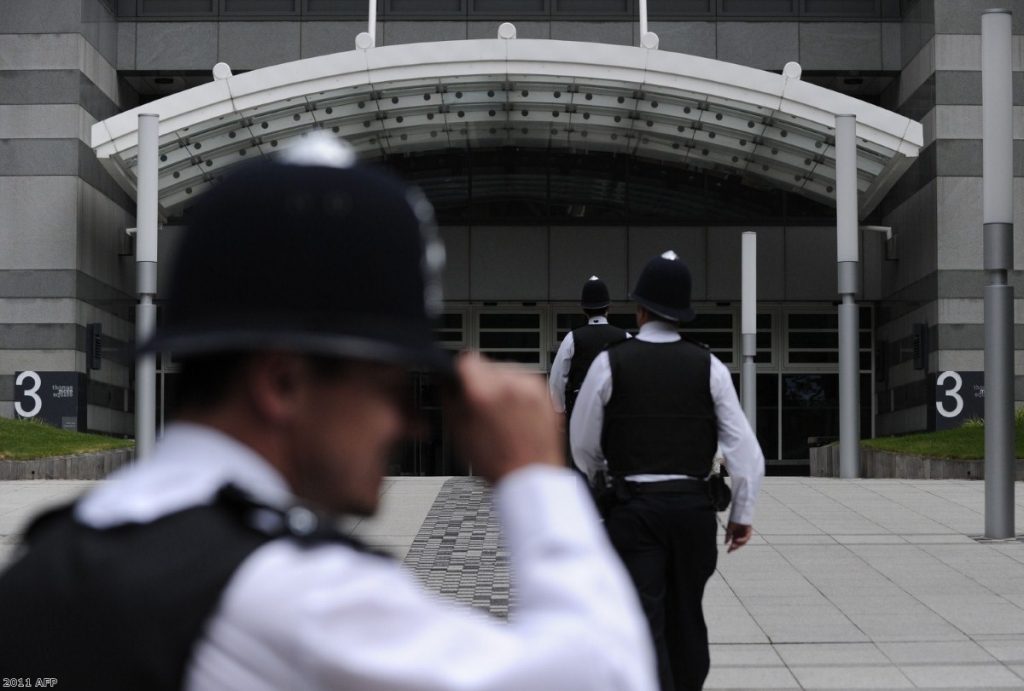‘My family had been destroyed’: Tessa Jowell on life under phone-hacking
Tessa Jowell has admitted spending years of her life checking nearby cars for members of the press as she explained the impact phone-hacking had on her private life.
Speaking at the Leveson inquiry, the former media secretary described how she won £200,000 compensation from News International after police found her phone had been hacked "wholesale".
The interceptions took place at the same time as reports emerged of links between her estranged husband, David Mills, and then-Italian premier Silvio Berlusconi.
"At that time my family had been destroyed," she told the inquiry.


"I did my job every day but life was very, very difficult.
"I was shocked by what I'd heard but at the same time it answered a lot of questions I had about why I was followed everywhere, how people seemed to know where I was going.
"It did provide an explanation but at the same time the invasion of my privacy was total during that period."
She added: "This was six years ago, but it's only in the last 18 months I find myself not looking in cars to see if there's someone waiting."
"You adopt a permanent stance as if you’re being followed, as if someone's watching, as if someone's listening."
Ms Jowell said the police officer who told the inquiry “all of the potential victims declined to assist us with prosecution” had given inaccurate testimony.
Keith Surtees, one of the Met officers who worked on the initial 2006 investigation, made the comment when he appeared at the inquiry earlier this year.
"I was deeply shocked when I read Keith Surtees' evidence. It is completely untrue. Had I been asked at that time to provide a witness statement I would have provided it."
In a comment which will send shivers around newsrooms in Fleet Street, Ms Jowell said stories appeared in the Mail, Evening Standard and Sunday Times which could only have come from phone-hacking.
Ms Jowell told the inquiry she had specifically asked Tony Blair if he had an agreement with Rupert Murdoch when she reviewed cross-media ownership rules ahead of the Communication Act.
"I asked him whether or not any deal had been done with Rupert Murdoch," she said.
"He gave me an absolute assurance which I completely accepted that there had been no prior agreement."
She then told Mr Blair not to meet any interested parties while she gathered information and reported back to him.
The Act eventually loosened rules around ownership, allowing US corporations to buy British free-to-air broadcasts.
Ms Jowell admitted to the inquiry that Mr Blair asked her to see if the rules could be relaxed sufficiently for Murdoch to buy ITV or Channel 5.
The then-media secretary's plans would have prevented any media group taking over the channels if it had over 20% market share, but notes by officials at the Department of Culture, Media and Sport show Mr Blair questioned that rule.
Ms Jowell said she had no detailed recollection of that meeting but admitted Mr Blair's instinct was "more deregulatory than mine".
Peter Mandelson, one of the architects of New Labour's spin-heavy approach to politics, is also giving evidence this afternoon. He has previously written that politicians were too afraid of the press.
"It should be a source of regret for everyone associated with the last Labour government that the only action in relation to the media for which we will be remembered is going to war with the BBC following the Iraq invasion in 2003," he wrote in the Guardian recently.
"The truth is, no issue of priority or principle was involved. We simply chose to be cowed because we were too fearful to do otherwise. And David Cameron took up where Tony Blair and Gordon Brown left off."
Lord Mandelson was informed by Mr Brown that his phone was being hacked in 2009 but the two chose to take no action. Since the phone-hacking revelations broke, the former prime minister has been far more vocal in his criticism however.

